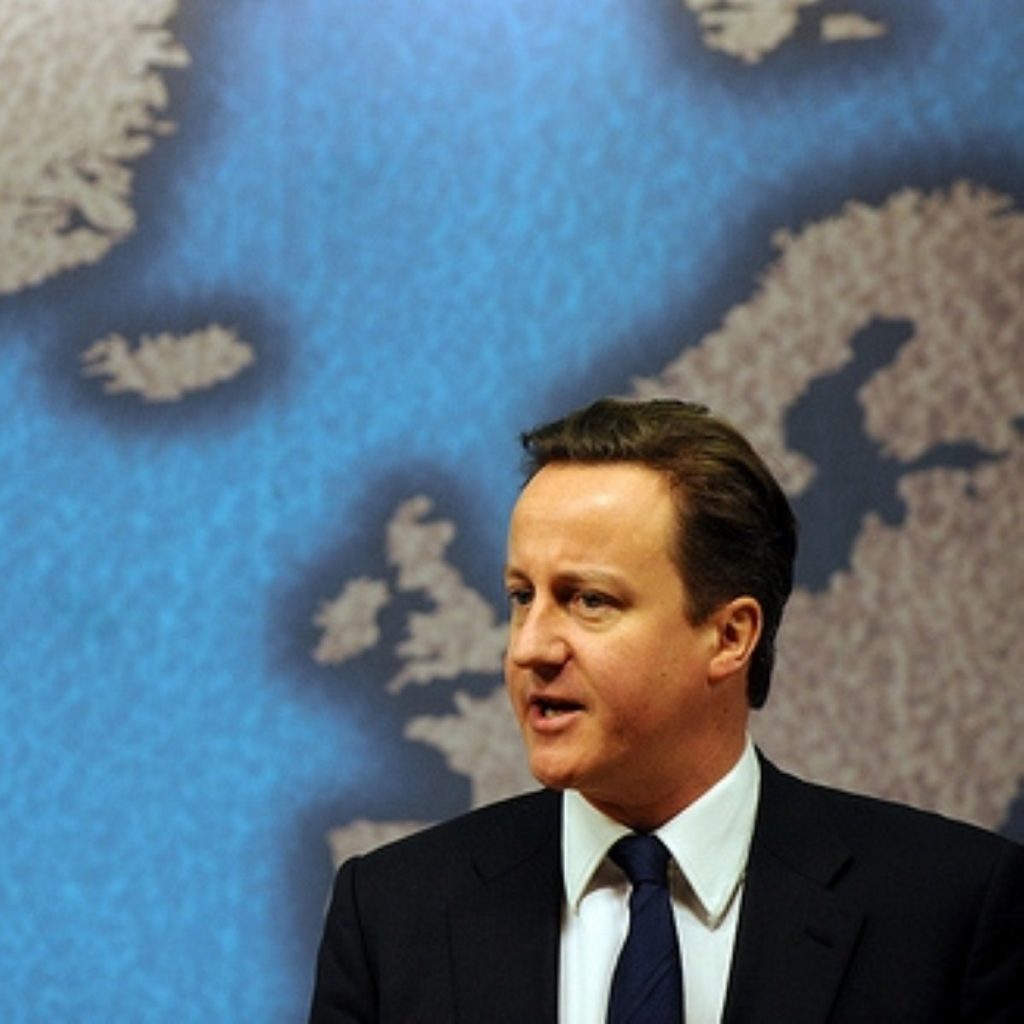Cameron’s place on world stage ‘uncertain’
By Alex Stevenson Follow @alex__stevenson
David Cameron lacks a cohesive foreign policy, according to the International Institute of Strategic Studies (IISS) thinktank.
Its Annual Review of World Affairs concluded that the prime minister had struggled to develop a distinctive approach to the world after more than a year in office.
The IISS acknowledged Mr Cameron's decisiveness in acting against Libya, but suggested his "priorities were clearly in domestic rather than foreign affairs".


"Cameron, whose ability to hold the reins of office with natural ease… seemed well-suited to the struggle, determined to press ahead but with the ability to adjust and to withstand setbacks," the review noted.
"The Libyan mission notwithstanding, he had not yet carved out a place on the world stage, or forged a distinctive foreign policy; the exigencies of the public finances, the domestic reform agenda and the coalition experiment were pressing enough."
The IISS' Strategic Survey 2011 disagreed with Labour's oft-repeated claim that developments in the Middle East and Libya meant the government should look against at its strategic defence and security review, concluded in late 2010.
Although agreeing with the officials involved that the SDSR was "quick and dirty", the Review concluded that the review's approach had been vindicated by the unexpected turmoil of the Arab awakening.
"The aim to remain flexible because of global uncertainties was quickly shown to be appropriate by the sudden upheaval in the Arab world," it added.
"UK service chiefs, as they engaged in a dogfight over whose assets would be eliminated, could hardly have expected that within months they would be undertaking military action against Libya while still fully engaged in Afghanistan."
It said the Ministry of Defence had decided to reduce Britain's overall expeditionary capacity while maintaining a broad range of capabilities.
Although major spending cuts meant the impact of employment was "high", the IISS found that Britain "remains a significant defence power, partly because of its ongoing commitment to a nuclear deterrent.
The IISS' director-general, John Chipman warned at the launch of the publication that Britain's limited ability to respond to global events was reflected in broader strategic shifts from west to east.
He argued that the need for a strong economy was becoming an increasingly important strategic asset, as the robust growth of China and the struggling western economies demonstrated.
"The sources of potential international leadership on key strategic issues are at once various and uncertain," he said.
"The US will not want to rise to every occasion. Nor, in Europe, can France and the UK. In this context, there is a sense that the west is suffering from strategic arthritis and exhaustion, the rising powers of the east from strategic growth pains and indecision."
Dr Chipman added: "The room for mavericks and rogues to manoeuvre for their own gain is thus expanded. Who will come to the rescue if these start doing real damage, and how effectively, is anybody's guess."












